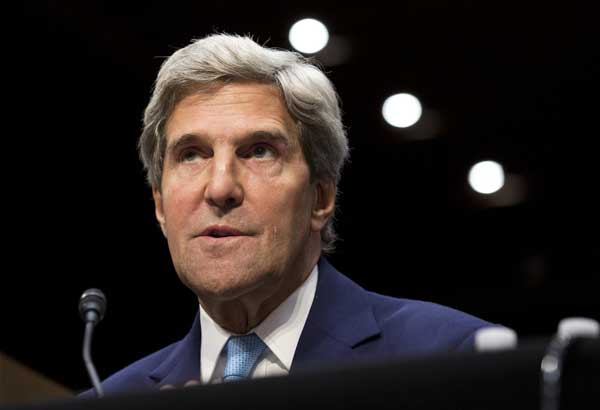US Secretary of State John Kerry's second visit to the Middle East in a month - and the eighth since assuming office in March - shows Washington still spends a lot of its energy in trying to resolve the issues gripping the region, which incidentally is not conducive to its "pivot to Asia" strategic policy.
On top of the to-do list of Kerry, who flew into the Middle East on Friday, is to make Israeli Prime Minister Benjamin Netanyahu agree to a coordinated stance on the Iranian nuclear issue because Israel is apparently unhappy with the progress made on the issue. Before the new round of talks between Iran and the P5+1 began in Geneva on Wednesday, Israel had argued that Western powers should intensify, instead of easing, the sanctions on Iran to achieve a better deal.
 |
|
US Secretary of State John Kerry presents the administration's case for US military action against Syria to a Senate Foreign Relations Committee hearing in Washington September 3, 2013.[Photo/Agencies] |
As the closest US ally in the Middle East, Israel holds a lot of sway in American policy toward Iran. But its hard-line stance could undermine international efforts to achieve a breakthrough in the long-standing Iranian nuclear issue.
Another worrying development for the US secretary of state is the sign that the direct talks between Israel and Palestine, which restarted in July thanks to Kerry's mediation, could collapse. Earlier, Palestinian President Mahmoud Abbas' team negotiating with Israel decided to resign in protest against expanding Jewish settlements in the West Bank and East Jerusalem, although Abbas has rejected the team's decision. And despite Abbas emphasizing that Palestine is committed to holding talks with Israel, the chances of the two sides reaching an agreement in nine months certainly look bleak if Jewish settlements continue to expand in the occupied territories.
The Iranian nuclear issue and the Israel-Palestine talks are important for the US administration because their outcome will have a direct impact on US domestic politics. Since the mid-term elections are less than a year away, the Barack Obama administration is desperate to flaunt foreign policy achievements to garner some popular votes. Yet its pragmatic approach in the Middle East and the profound changes in the region's geopolitics have hampered the Obama administration's efforts to turn its words into actions, drawing flak from a lot of its allies in the region.